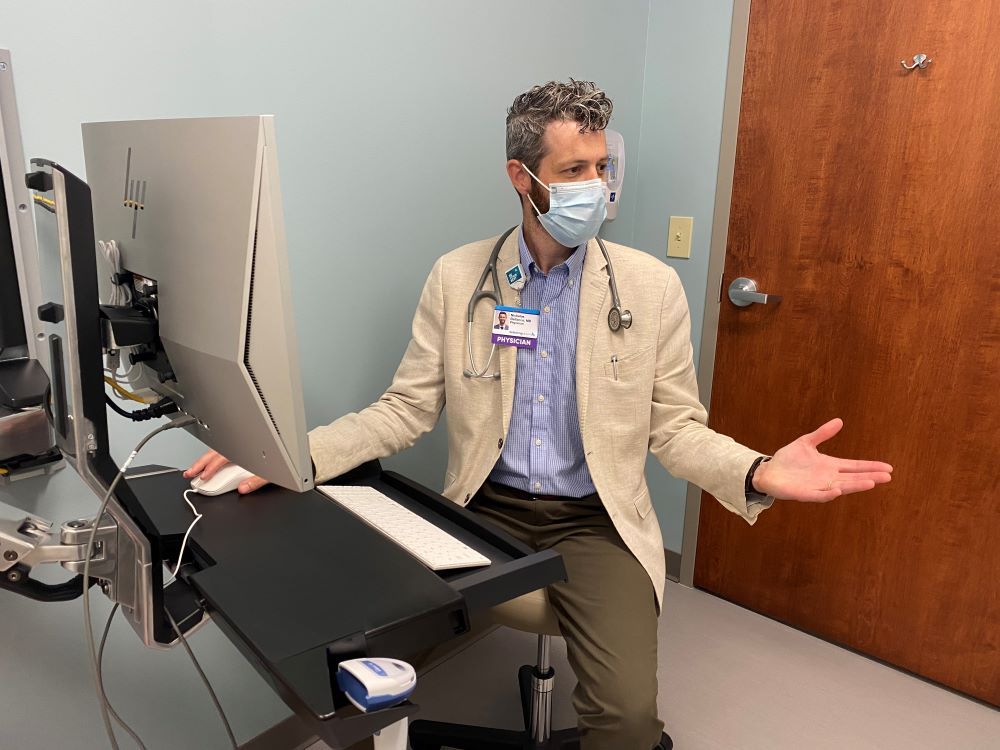Primary Care
Want to learn more about this at Kettering Health?
Fewer experiences are as disorienting as stepping off a roller coaster and feeling the world spin and churn around you.
While it’s one thing to feel that way at an amusement park, it’s another—and is much more unsettling—when it happens as you sit up in bed or stand up at work. When that happens, says Dr. Nick Bellanco, a family medicine physician with Kettering Health, you’re likely experiencing vertigo.
What is vertigo?
“Vertigo is defined as a false sense of motion,” says Dr. Bellanco, “and makes up for more than half of all primary care visits with a complaint of dizziness.”
Roughly 90% of cases of vertigo are caused by what’s called benign paroxysmal positional vertigo (BPPV). BPPV, says Dr. Bellanco, is caused by small stones called canaliths, which stimulate tiny organs in the inner ear to help us balance. When these stones shift and get misplaced, they send mixed signals to the brain. The result: you feel the room spinning.
If it’s not BBPV, other causes of vertigo are
- Acute vestibular neuronitis: This happens when the vestibular nerve gets inflamed from a viral infection. This is often accompanied by common cold symptoms.
- Ménière’s disease: This is caused by too much fluid in the inner ear’s tiny organs. This is usually accompanied by hearing loss and ear ringing.
Vertigo happens more in adults than in children. And it tends to occur more as someone ages.
An important distinction, says Dr. Bellanco, exists between vertigo and dizziness. “An important question I ask my patients is, ‘When you experience your symptoms, do you feel lightheaded, or do you see the world spin around you?’ If the answer is the latter, then that is vertigo.”
What should you do if you experience vertigo?
The dominant symptom of vertigo is the sensation of the room spinning around you. Other symptoms include difficulty balancing and walking, nausea and headaches.
Symptoms often last between a few seconds and a few minutes, though more severe cases may last longer. Dr. Bellanco recommends you see your doctor if you experience any of these symptoms as vertigo can sometimes be confused with a stroke. For severe cases of vertigo, your doctor can help you find relief.
“In the case of BPPV, your doctor may have you perform special maneuvers to help reposition the canaliths,” says Dr. Bellanco. “Medications can be used in severe cases of BPPV. But they do have side effects and are not curative.”









